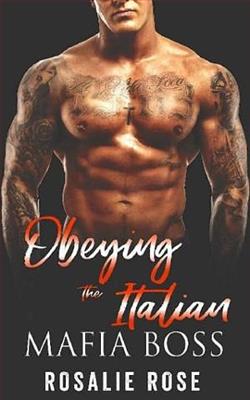Page 88 of These Summer Storms
Not even a son. He was just some asshole who couldn’t be trusted with anything more important than a make-work job.
Sam reached out and cranked the machine which, fully wound, would ring every fifteen seconds for fourteen hours. Long enough to see the island through a long, dark night.
When he released the crank, the mechanism groaned into action, clicking and moving in little jerks.
“Congratulations,” Sila said, not meaning it. “You got it working.”
He nodded. “Not such a joke now, am I.”
They watched it together, each wondering if it would do what it was supposed to. And then, with a mechanicalthud,the hammer let fly and struck the massive bell, loud enough for them to lurch backward.
“Are yousmiling?” Sila looked to him, horror replacing the panic and shock that had flooded her earlier questions. “Jesus Christ, Sam, whatever this is…you need to get it under control. If we’re going to win, you cannot let your”—she waved a hand at him—“grief…get in the way.”
Grief.What a bullshit concept. Sam wasn’t grieving. Normal people grieved. What was there for him to grieve? His father was still there, looming like a specter over the whole damned place. Over the wholedamned family. And they were damned, he thought as he watched the gear turn again.
This wouldn’t end on Wednesday. It wouldn’t end ever.
Franklin would always have more to say, and he’d always be able to shut Sam up to say it. Even now. Even dead.
So, no. Sam wasn’t feeling grief. He was feeling fury, that he’d let this place run him for so long. And that he couldn’t stop.
The hammer hit the bell again.
“I’m getting out of here,” Sila said in the echo.
“For good?” he asked, turning to look at her. Hating the panic that flooded through him at the question. At the answer.
She froze, and he watched a dozen emotions cross her face before she turned on her heel and left the building.
He caught up with her at the ancient stone wall that marked the meadow at the top of the ridge, the bell still ringing from the south, his father’s enormous oak looming in the distance. That damn tree, bad enough before, now tall and green and beautiful, with his kids underneath it, a fourteen-year-old sister and her nine-year-old brother usually from different planets, now laughing together.
Another memory. A million years earlier, under the same tree with his own sisters—nothing else to do on the island but figure each other out. A million years was right. He couldn’t remember the last time they were together.
He didn’t want that for his kids.
“Sila—”
“You’d love that, wouldn’t you,” Sila said, like she was the heroine of the play, like a character the Internet would lose their minds over, beautiful and strong and cold (queen!). She stared him down, her face smooth and sharp and perfectly sculpted, her dark-brown hair turned a warm gold that cost him thousands every six weeks. “If I left. If I took the kids.”
“No,” he said, the reply harsh and unyielding. “You’re not taking the kids.”
He knew instantly that it was the wrong thing to say. That he’d givenher too much. That she’d use it to punish him. “You owe me, Sam. The Storms owe me. For every time your mother side-eyed mine. For every time your sisters act like they’re better than me. For your father, who loved to gloat that he paid for everything, including your salary, which now you tell me he took from you? For making me sit in the fuckingfog bell house. Your well may be dry, Sam, but you can be certain mine is getting refilled.”
“So that’s it. You’ll stay for the money.”
“What am I supposed to stay for? Love?” It came out like a hilarious joke, and for a moment, Sam remembered a time when they teased at love. When they might have been happy.
Sam turned to look toward the Bay, gleaming and beautiful.
He’d never thought about love. It had always been a transaction with his family. There one day, gone the next, back another time, when someone earned it. And love hadn’t been a part of his marriage. Attraction? Yes. Fondness periodically, respect even (though not right now, clearly). But he didn’t stay in the marriage for her.
She didn’t stay for him, either. Neither of them were perfect. The years had been filled with boredom and disinterest and infidelity on both sides, though Sila had been careful to keep hers devoid of strings and scandal—a lesson Sam had struggled with, until his parents had reminded him of the power of their disappointment.
So he’d stayed in the marriage, partially because of Franklin’s will and partially to avoid Elisabeth’s disappointment. But he’d also stayed because he had known that while he wasn’t a great father, Sila was a terrible mother.
“I know you don’t want to say it out loud,” Sila pressed on, unaware of his thoughts. “Because those old-money values of your mother’s make sure you never mention money in polite company, but one of us has to think about it. One of us has to think about how we get the life we want, and the kids get the lives they want, and we all get to live the future we were promised.”
The wind picked up, as if on cue, as if she had summoned it. She might have been beautiful then, if he didn’t hate her so much. “I’ll dowhatever it takes to make sure your family doesn’t ruin what I’ve worked for.” She paused. “And your family will do what they have to do to activate the inheritance.”















